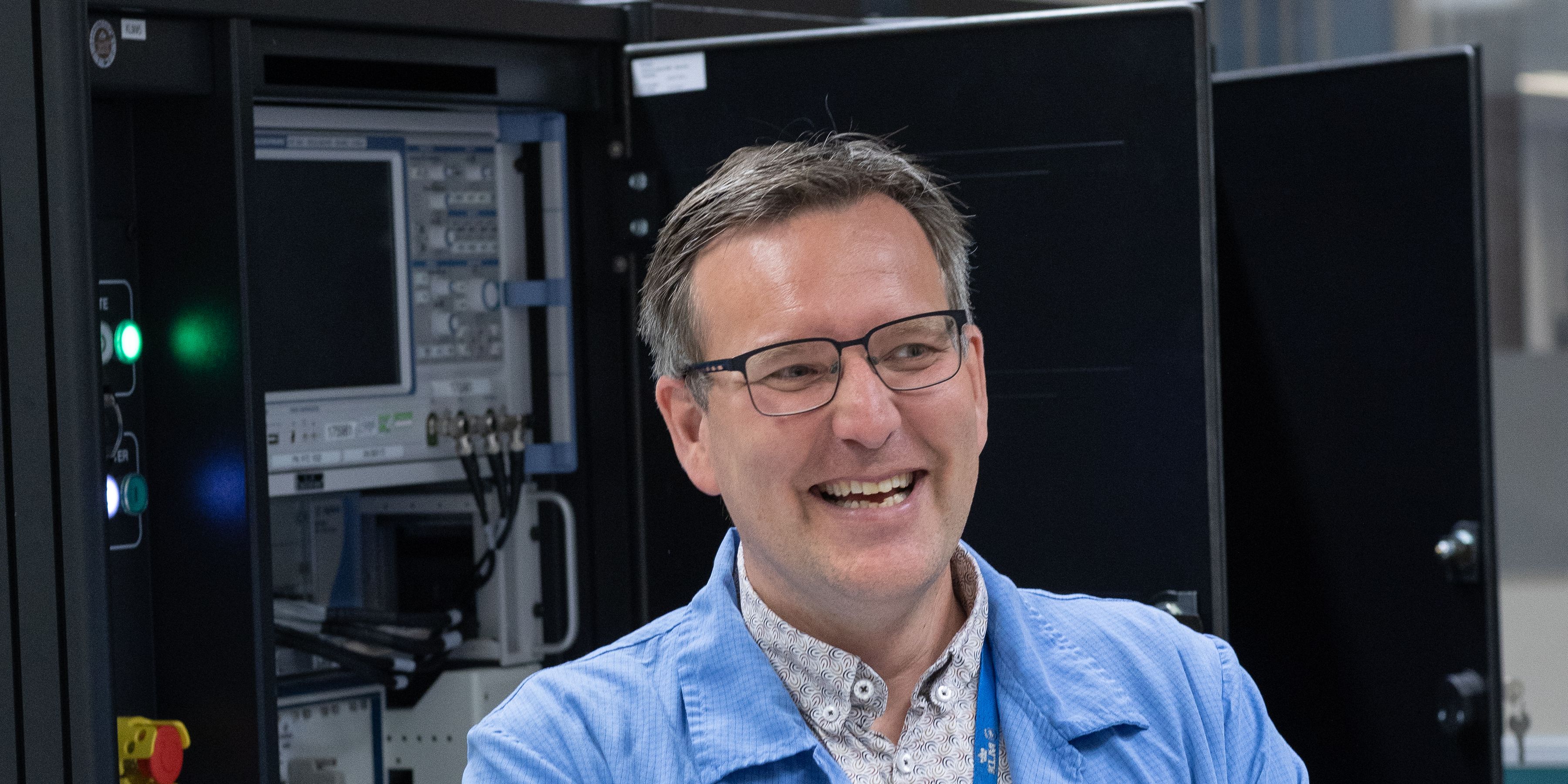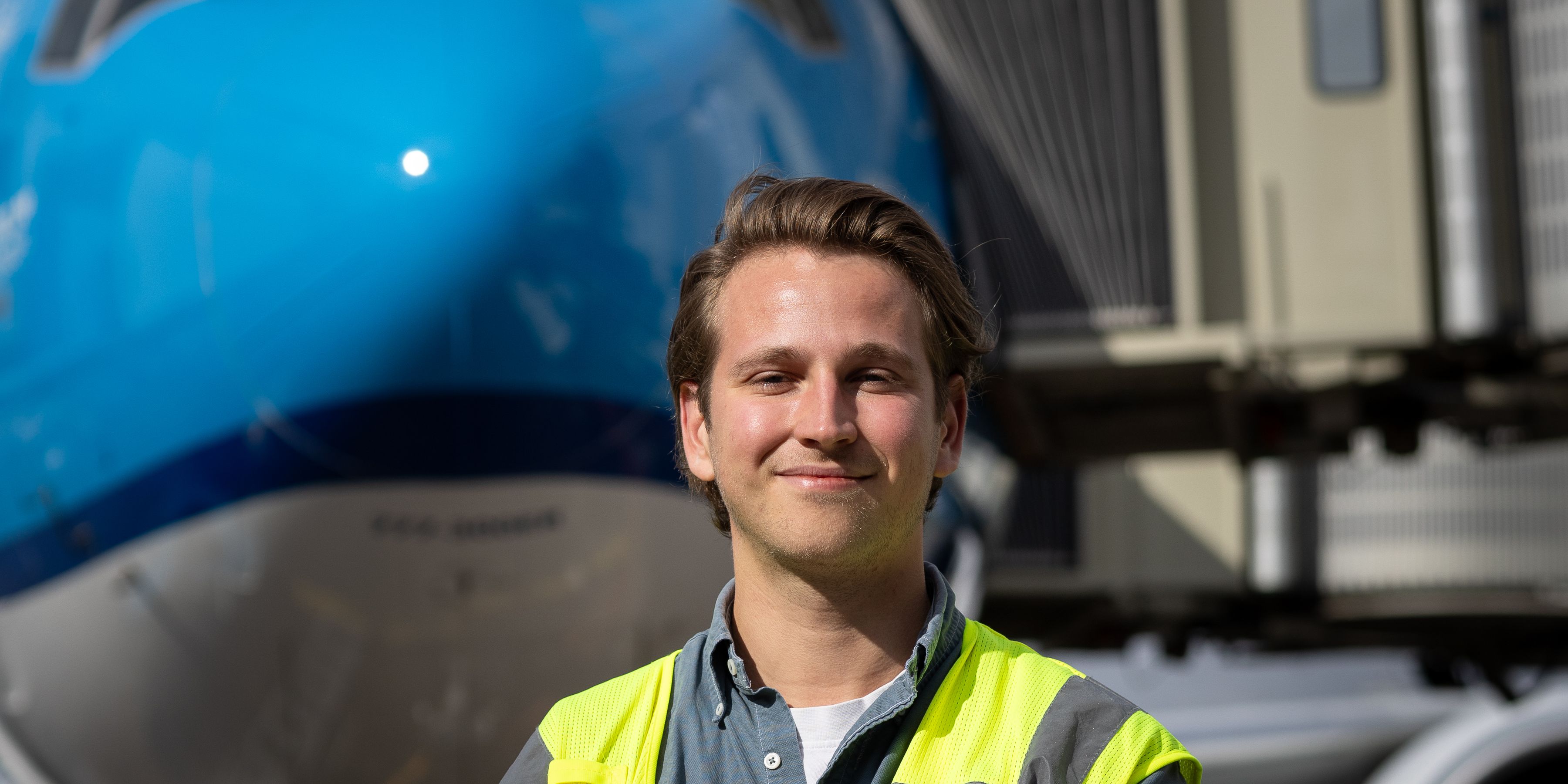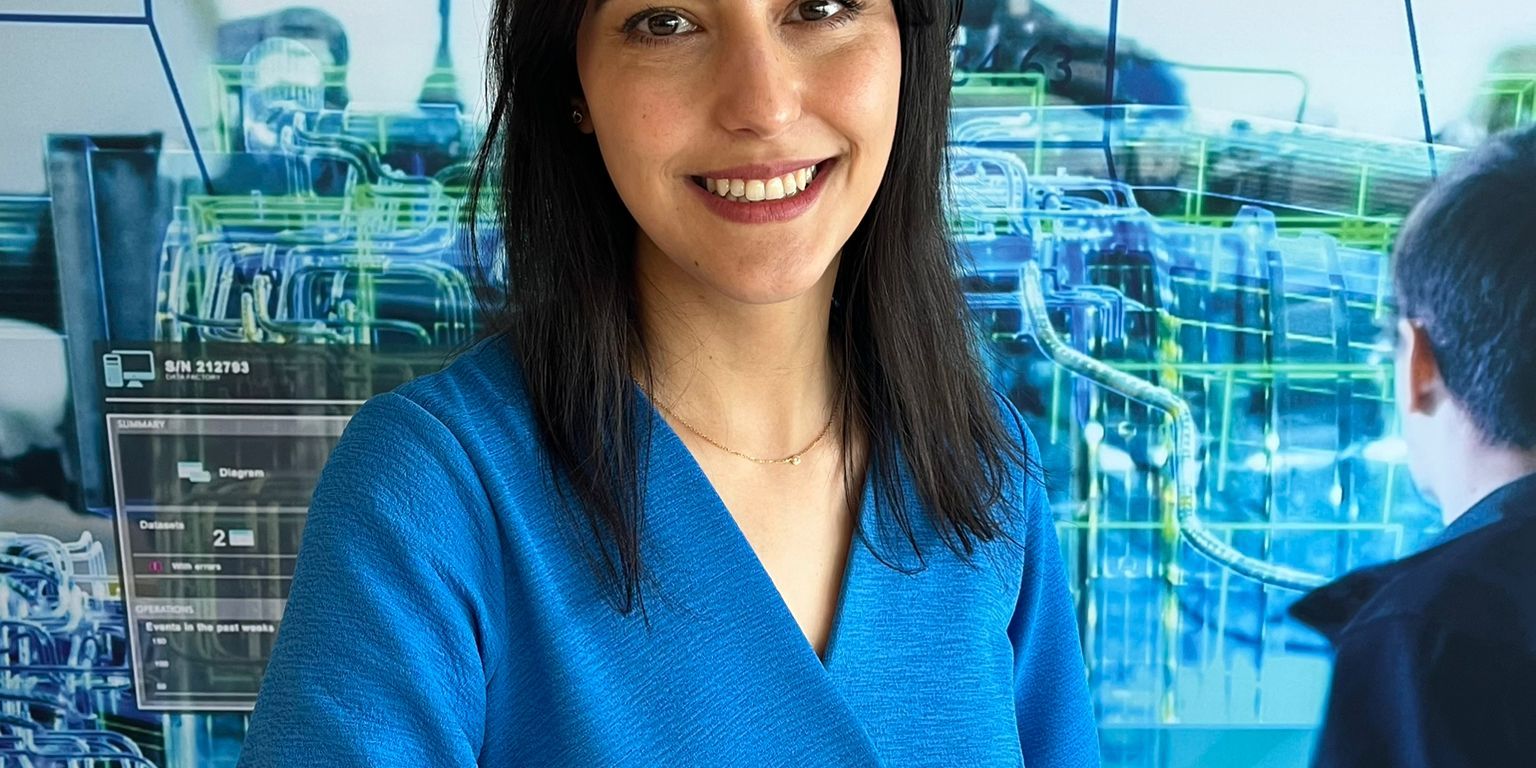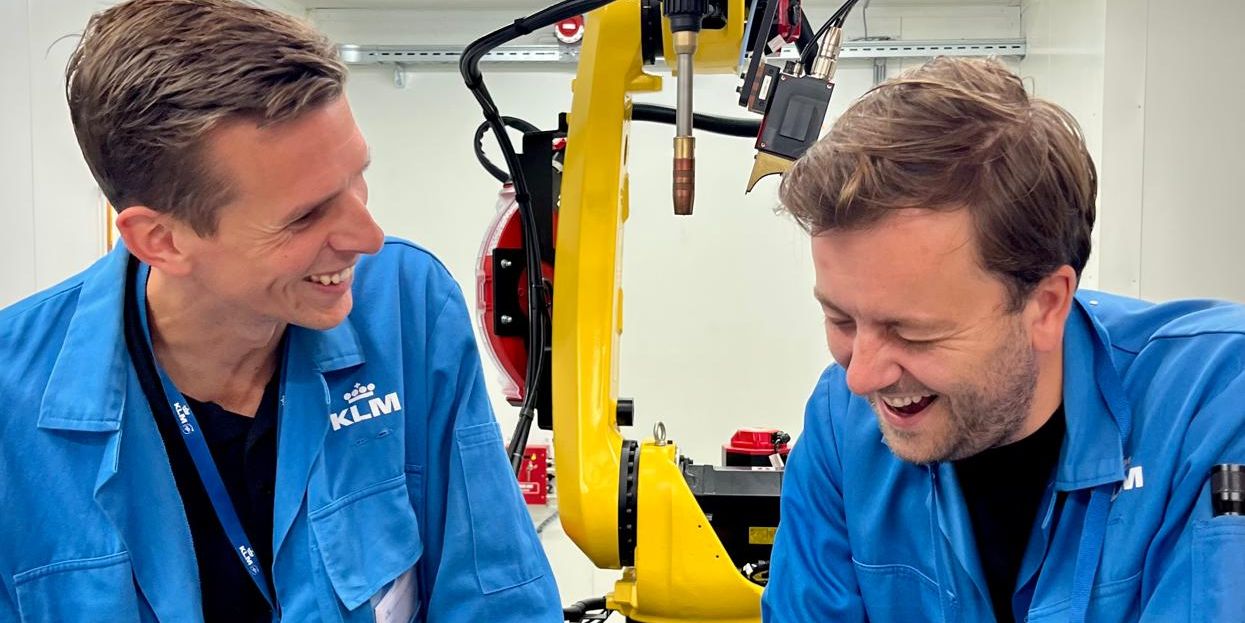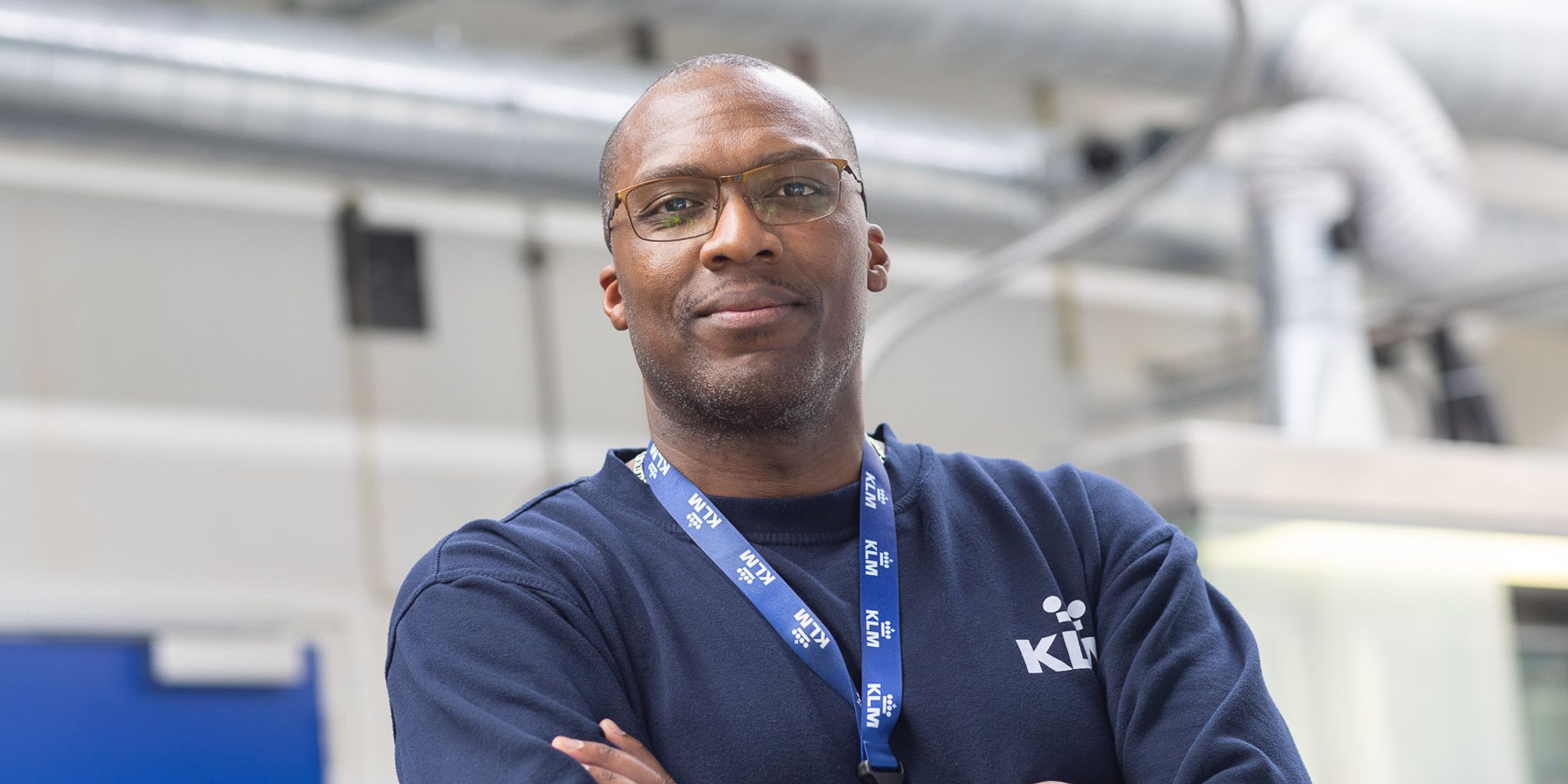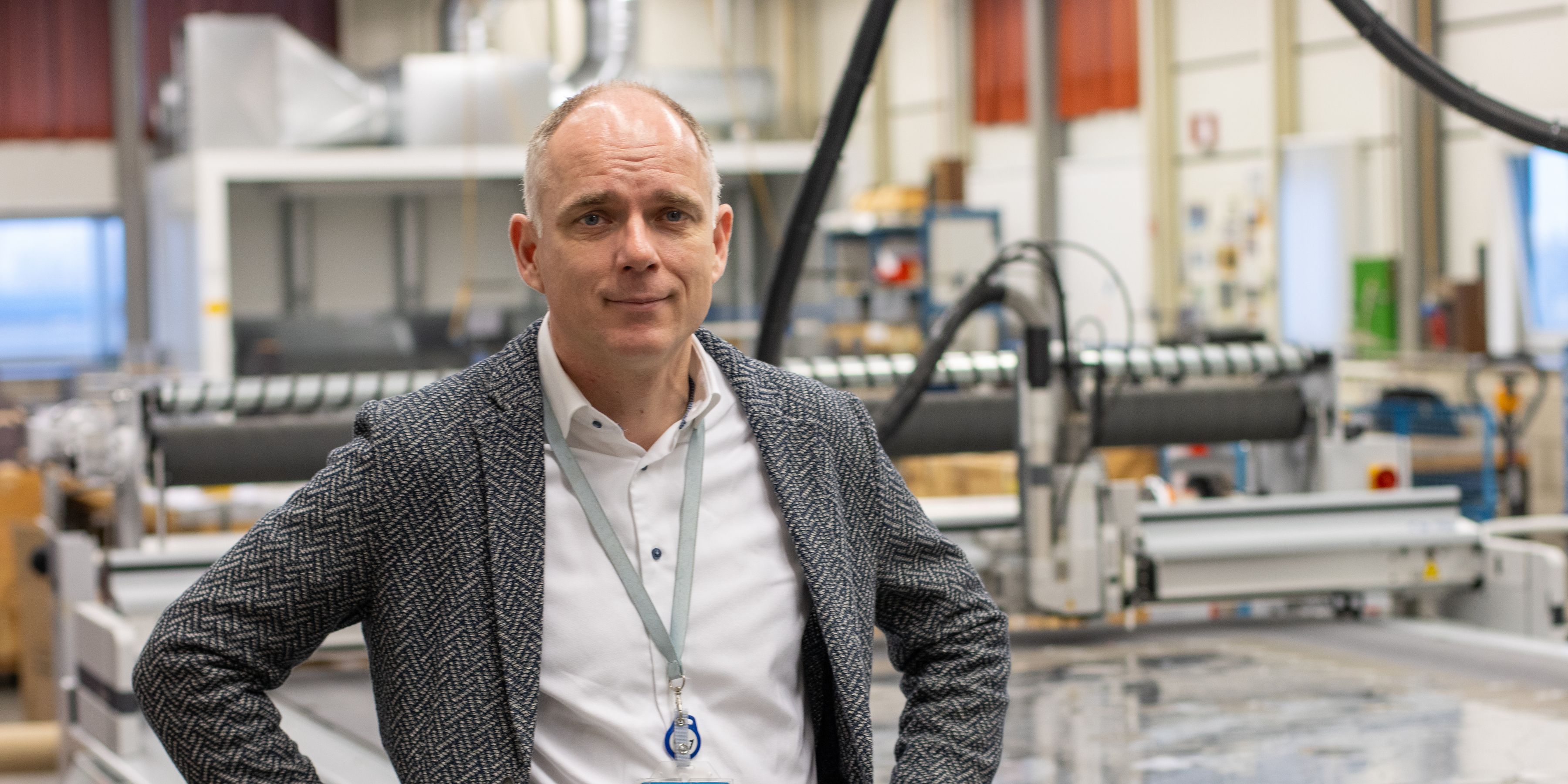Technology and Innovations at the Highest Level
The inspection of engine parts at KLM is becoming increasingly automated. The Repair Development team is working hard on developing an ‘inspection line’. In this line, we check parts for any damage using robotic arms and advanced AI tools. In doing so, we are preparing our maintenance operations for the future.
After his graduation internship, Jochem (23) started working at KLM’s Engine Services business unit. For the past year, he has been part of the Repair Development team, which is part of Bright Sky—a collaboration between KLM, TU Delft, Schiphol, and Dutch Air Traffic Control, among others. The goal of this project: a more sustainable, cleaner, and future-proof aviation operation.
Through the inspection line
One of Bright Sky’s five themes is Maintenance, Repair & Overhaul (MRO), which focuses on aircraft maintenance and the surrounding infrastructure. “We’re investigating how to inspect engine parts more efficiently and accurately, and how we can support colleagues with new technologies,” says Jochem. “Right now, we’re busy with the development and implementation of three machines that together make up the ‘inspection line of the future’.”
Jochem explains: “First, an engine part goes through our laser scanner for a three-dimensional inspection. Next, it passes through our own robotics setup, developed together with an external partner. There, any damage is detected using AI tools and high-resolution images. In the final machine—the 3D microscope—we measure the damage with great precision. This way, our colleagues in the engine shop know exactly which repairs need to be carried out.”
Inspecting down to the details
“The machines in the inspection line can’t detect hairline cracks and fine damage beneath the surface,” Jochem continues. “For that, we use other techniques, including Eddy Current Testing. In short: a special sensor induces small electrical currents in the metal. If there’s a crack or defect, these currents are disrupted. This allows us to detect irregularities without damaging the part.”
Finally, there are three robotic arms in the Thermal Spray department, Jochem adds. “We use these to apply high-quality material to parts, for example a special ceramic coating. Some areas of the engine get so hot that the parts need a protective layer. We’ve automated that process as well.”
Shortage of hands
Why is innovation in aviation necessary, according to Jochem?
The more accurate our inspections, the safer the flights and operations.Jochem
“But there’s another factor: the average age in the engine shop is high. Within ten years, not only will a lot of experience and valuable knowledge be lost, but also many hands. Everyone knows how difficult it is to attract young technical staff. That’s why we’re developing machines that will soon take over the heavy work.” But, Jochem emphasizes, the machines are also important now. “They support my colleagues and help lighten the workload on the shop floor.”
Unlike in the engine shop, the Repair Development team consists exclusively of young people. “Because of that age difference, we sometimes have different perspectives on technology and innovation,” says Jochem. “I understand that change raises questions—that’s part of the process. That’s why we regularly engage in discussions together. The combination of years of experience and fresh ideas is extremely valuable in our field. That way, we all keep learning to work more efficiently.”
Upward trend
“Some machines within Engine Services are not being used to their full potential—we’re not yet using all of their advanced features and capabilities,” Jochem continues. “Mainly due to a lack of time and knowledge. In time, I’d like to move up and help my colleagues get the most out of these machines. I’d also like to program robots so we can further automate the heat treatment of engine parts.”
Jochem feels completely at home at KLM.
I find it fascinating to work on innovative developments. The world is changing incredibly fast, which means our work never stands still. And since we work not only for our own fleet but also for other airlines, what we do feels even more relevant.Jochem
